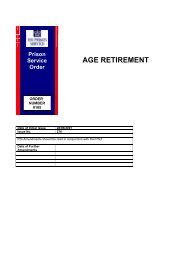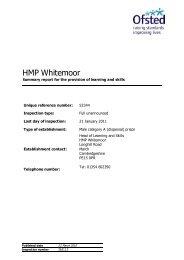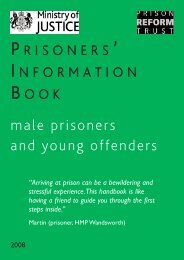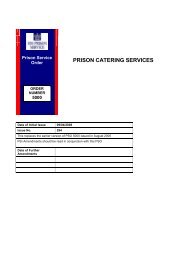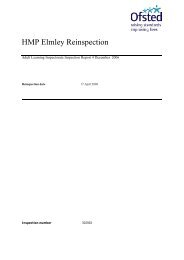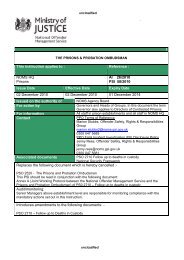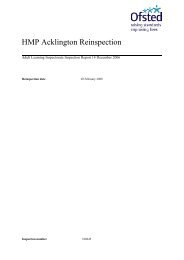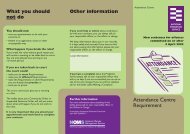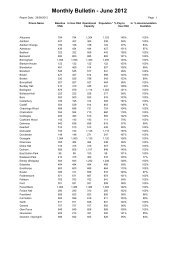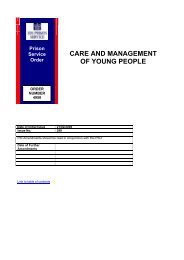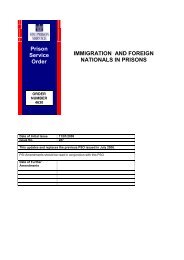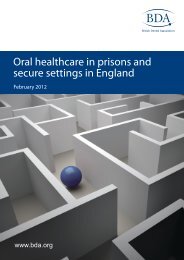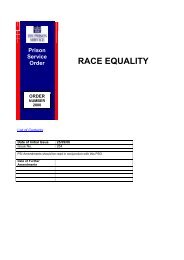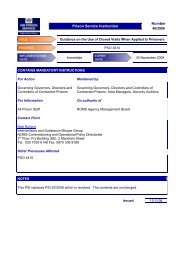PSO 2855 - Inside Time
PSO 2855 - Inside Time
PSO 2855 - Inside Time
You also want an ePaper? Increase the reach of your titles
YUMPU automatically turns print PDFs into web optimized ePapers that Google loves.
<strong>PSO</strong> <strong>2855</strong> Page 186.7 Any special needs a prisoner has and action taken to address them needs to be recordedon the prisoner‟s F2052A. It is best practice to consult the prisoner on how they feel theirdisability affects them and to give them the opportunity to state their needs, rather thanmaking assumptions.6.8 Any form of aid to mobility (or to sensory perception) including wheelchairs, whetherspecially adapted or not, crutches, sticks etc need to be retained in possession, unlessthere is a good (and defensible) reason not to. If Reception staff are concerned that theremay be a security risk involved, a risk assessment needs to be carried out and a suitablealternative provided. If this involves the prison providing an alternative wheelchair, careneeds to be taken to ensure the prisoner is transferred safely.6.9 The searching of prisoners with disabilities, whether by rub down or a full search, needs tobe conducted at all times with dignity and decency and take full account of the prisonersdisability. Staff need to ask the prisoner what his/her needs are, explain what the searchwill involve, and what the prisoner will be asked to do. Staff need to ensure that theprisoner understands what will happen before the search begins. This may be particularlyupsetting for prisoners with an autistic spectrum disorder. If there are any doubts about theapplication of searching procedures it is good practice to consult a member of thehealthcare team. Link to (NSF Function 3, Searching People with Injuries or Disabilities).First Night Centres and Induction(See <strong>PSO</strong> 0550)6.10 Prisoners with disabilities need to have access to an induction programme adapted to meettheir needs. Good practice exists in the Assisted Advice and Access (AAA) Centre at HMPManchester where induction is targeted at addressing the needs of the most vulnerable,including those prisoners with disabilities, and factors such as the ability to understandEnglish, literacy, mental health and educational needs are taken into account whendetermining how long the prisoner will spend on the Induction Wing. Prisoners are able toreturn to the wing should they fail to cope or need further support.6.11 Where possible, information given on Induction, as well as other important information,needs to be made available in alternative formats e.g. large print, pictorial, Braille andaudio-tape. An Information Book for Disabled Prisoners has been prepared by the PrisonReform Trust in association with the Prison Service and this should be made available to allprisoners with disabilities (see Annex G for details)Issue No. 295 Issue date 3/04/08



